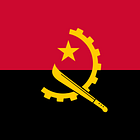China Diplomatic Digest Q1 2024
A slow but impactful start to the year
Firstly, thank you to everyone who has been reading China Diplomatic Digest this year. If you aren’t already, please make sure to follow this digest’s LinkedIn page if you want to receive more frequent short-form updates relating to changes in China’s diplomatic network.
Before shifting our focus to Q2, let us take a moment to recap Q1.
Whilst 2024 has been relatively slow so far, China’s diplomatic network still saw a number of important developments in Q1.
By my count, 13 ambassadorial posts were made vacant in the first 3 months of 20241, including three vice-ministerial-level posts, namely, to South Africa, the EU, and the UN.
As for arrivals, only 8 Chinese ambassadors took office in Q1. After starting the year with a quick succession of appointments, the rate of new appointees slowed dramatically. Whilst it had been reported by Bloomberg that Fu Cong will be filling the vacant post at the UN, as of writing he has not yet taken office.
The locations that did receive a new Chinese ambassador this quarter were: Samoa, Qatar, Albania, Bolivia, Angola, Singapore, Panama, and Madagascar. All of which have strategic importance to China, albeit for different reasons. Some are important natural resource exporters, whilst others have geostrategic value.
Of the new arrivals, the most experienced appointee has to be Cao Zhongming, Ambassador to Singapore, who was until recently China’s Ambassador to Belgium.
For the majority of the Q1 cohort, this will be their first time serving as an ambassador, with only 3 having prior ambassadorial experience. At 58 years old, Cao Zhongming is the oldest of the cohort, and at 48 years old, Wang Liang (Ambassador to Bolivia) is by far the youngest. Overall, the average age of the cohort was 54.
As for gender balance, only 2 of the new arrivals were women.
Thus far, I have written articles about 6 of Q1’s new arrivals. In case you missed any, you can find them here:
In short, Q1 2024 saw more Chinese ambassadors vacate their posts than anything else.
If China is going to appoint as many ambassadors in 2024 as they did in 2023, then the rate of arrivals in Q1 was lower than one would expect. That being said, with so many ambassadorial posts currently vacant, it looks like there will be a lot of arrivals in Q2.
Whilst there have been no new arrivals in Q2 yet, we have already seen China’s ambassadors to Iran, Saudi Arabia, and Botswana all begin the process of vacating their posts.
Make sure to keep an eye out for future updates from China Diplomatic Digest in Q2.
A post was considered vacant when it was made public the ambassador was departing rather than waiting for the ambassador to actually leave the country.








Cutting red tape for return of old summer palace item nine dragon Red lacquer throne Grand Council Court thrones YongZheng Kangxi Qainlong and others used. Purchased July 12th auction of nobility, entire grand council court thrones only one is available for acquisition in Chicago